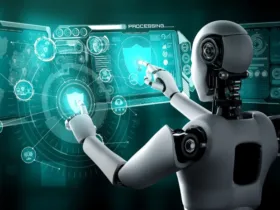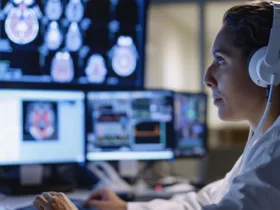Artificial Intelligence (AI) is revolutionizing industries worldwide, and India’s education system is embracing this transformation with the All India Council for Technical Education (AICTE) leading the way. AICTE’s initiative to integrate AI courses across various disciplines in its affiliated institutions aims to prepare students for a future where AI drives technological and industrial advancements.
This move is part of AICTE’s broader vision to align India’s technical education system with emerging global trends, ensuring that students graduate with the skills necessary to excel in AI-dominated fields. This article explores the details of the initiative, its structure, and its expected impact on India’s education system and economy.
Why AI Integration in Education Matters
AI is not just a technological advancement; it is a paradigm shift that affects every aspect of human life and industry. From healthcare and finance to logistics and entertainment, AI is reshaping the way we work and live. Recognizing this trend, AICTE has decided to embed AI learning into the core of technical education.
The Growing Need for AI Skills
- AI-driven industries require a skilled workforce proficient in AI technologies like machine learning, data science, and robotics.
- Global reports indicate that AI-related job roles are growing exponentially, with demand far outpacing supply.
- By integrating AI into its curricula, AICTE aims to bridge this skills gap and ensure that Indian graduates are competitive on a global scale.
The Role of AI in Multidisciplinary Learning
- AI is no longer confined to computer science. Its applications span engineering, healthcare, business, and the humanities.
- AICTE’s multidisciplinary approach allows students from various disciplines to integrate AI into their fields, fostering innovation and cross-industry collaboration.
Details of AICTE’s Initiative
Curriculum Development
AICTE has developed model curricula for undergraduate programs focusing on AI-related disciplines, such as:
- Artificial Intelligence and Machine Learning (AIML)
- Artificial Intelligence and Data Science (AI&DS)
- Robotics and Artificial Intelligence
These programs incorporate:
- Foundation Courses: Basic science and mathematics to build a strong technical base.
- Core AI Subjects: Topics such as machine learning, deep learning, data analytics, and neural networks.
- Electives: Interdisciplinary options that allow students to explore AI applications in fields like healthcare, finance, and manufacturing.
- Practical Training: Hands-on experience with AI tools and platforms, enabling students to apply their knowledge in real-world scenarios.
Flexible Learning Paths
To accommodate students from different disciplines, AICTE’s initiative includes flexible learning options, such as:
- Elective AI courses for non-computer science students.
- Cross-disciplinary projects encouraging collaboration between fields like engineering, management, and life sciences.
Institutional Support
AICTE is working closely with affiliated institutions to:
- Train faculty members in AI concepts and teaching methodologies.
- Provide access to cutting-edge AI tools and resources.
- Collaborate with industry partners to design industry-relevant curricula.
Expected Outcomes of the Initiative
1. A Skilled Workforce for the Future
By integrating AI courses into technical education, AICTE aims to produce graduates who:
- Are well-versed in AI technologies and their applications.
- Can contribute to AI innovation in industries ranging from healthcare to logistics.
- Possess interdisciplinary skills, enabling them to solve complex, real-world problems.
2. Boosting India’s Global Competitiveness
India is already a hub for IT and technology services. By focusing on AI education, AICTE is positioning the country as a leader in AI research, development, and application. This move aligns with India’s broader goal of becoming a $5 trillion economy.
3. Promoting Research and Innovation
The AI courses are designed to inspire a culture of research and innovation. With exposure to advanced AI tools and techniques, students can pursue groundbreaking projects that address global challenges, such as climate change, disease prevention, and sustainable development.
4. Inclusive Learning Opportunities
AICTE’s multidisciplinary approach ensures that AI education is accessible to students from diverse academic backgrounds, promoting inclusivity in the AI revolution.
Challenges and Solutions
1. Faculty Training
Challenge: Many institutions lack faculty members proficient in AI concepts.
Solution: AICTE is conducting faculty development programs and partnering with tech companies to provide training.
2. Infrastructure Limitations
Challenge: Some institutions may lack the technological infrastructure for AI courses.
Solution: AICTE is working to improve access to AI tools, labs, and resources, particularly in rural areas.
3. Bridging the Digital Divide
Challenge: Students from underprivileged backgrounds may face barriers to accessing AI education.
Solution: AICTE is advocating for scholarships and subsidized learning resources to ensure equitable access.
Impact on Industries and Society
Industries
- Healthcare: AI-trained professionals can develop diagnostic tools, predictive models, and personalized medicine solutions.
- Agriculture: AI can improve crop management, pest control, and yield prediction, addressing food security challenges.
- Finance: AI graduates can design algorithms for fraud detection, investment analysis, and financial forecasting.
- Manufacturing: AI applications in automation and predictive maintenance can enhance productivity and reduce costs.
Society
- Increased AI literacy among students can lead to the democratization of AI, empowering citizens to participate in AI-driven economies.
- AICTE’s initiative can drive social innovation, using AI to tackle issues like poverty, education inequality, and healthcare accessibility.






